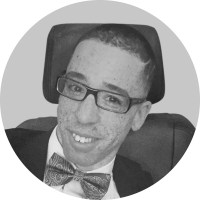Unsung Heroes of the Homefront: Disabilities and World War II

Unsung Heroes of the Homefront: Disabilities and World War II
During World War II, the urgent call for national unity saw over three million people with disabilities step up to join the war effort. They became crucial to wartime production on the home front, proving their immense capabilities when given the chance.
Before the war, individuals with disabilities often faced significant hurdles in education and employment. Social stigma and a lack of anti-discrimination laws meant many were excluded from the workforce. The attack on Pearl Harbor, however, changed everything. The desperate need for workers pushed industries to re-evaluate their hiring practices, leading to groundbreaking opportunities.
Companies such as Goodyear, Lockheed, and Boeing began hiring people with disabilities, many for the very first time. Aviation manufacturers discovered the unique advantage of workers with dwarfism for tasks in confined spaces. Deaf workers, communicating through American Sign Language, thrived in noisy factory environments. Blind workers showcased exceptional skill in tactile assembly. Even veterans with wheelchairs or prosthetics contributed effectively on production lines, with machinery adapted to their needs.
A 1943 study confirmed that disabled employees performed just as well as, or even surpassed, their non-disabled colleagues. Ford Motor Company exemplifies this, employing 11,000 workers with disabilities and ensuring they receive equal wages. These contributions were vital to the war's success.
Sadly, the inclusive hiring trends did not continue after the war, as returning service members were prioritized for jobs. Despite this setback, the wartime efforts of people with disabilities undeniably demonstrated their immense value in the workforce. They challenged outdated biases and laid early groundwork for the benefits of an inclusive workforce.
Their dedication and hard work were instrumental in achieving victory. It makes you wonder, what other hidden strengths and talents might we overlook today?
You can read the original article that inspired this post here: How People with Disabilities Helped Win World War II
Comments
-
What a great reflection!!
it does make me said that these inclusive hiring practices did not continue after the war- especially since many of the soldiers returning home may now also be a part of the disability community- I would have hoped that more inclusive practices would have remained. I am also sad that I did not know there was this effort to bring the disability community into the workforce. I think many of us are familiar with Rosie the Riveter-and bringing women into the workforce- but not these efforts for the disability community.
There is a truly fantastic National WWII Museum in New Orleans, LA, USA if anyone finds them self in the city- I highly highly recommend going. It is a beautifully designed museum, that is massive- and does such a great job at providing multiple pathways to connect with the content- and works to tell stories of experiences vs a collection of artifacts on a wall.
They have a whole section on "the home front"- showcasing how the community came together to support the war efforts- from celebrities working to keep up morale, to families making and sharing cook books like "baking cakes on sugar rations" - it showcased how women joined the effort in making ships, and airplanes, and trucks- but I am sad to say that I do not remember conversations about the disability community contributions!! Thank you for sharing this article!!
0 -
I second your museum recommendation, Sarah. You might wanna pick up a beignet too. Reading your comment makes me wonder how much of a disability forward culture we would be if those hiring practices were embedded in our society for 80+ years. Would we be closer to the European idea of disability in the workplace? Granted, Europe has issues, but in this specific area, I feel that its culture is more forward-thinking compared to where we are in addressing the same problem.
0
Categories
- All Categories
- What is Research at Open like?
- 2 What would you like to research?
- How can Open improve our community research?
- 16 Open Community (Open to All)
- 7 Welcome and Introductions
- 6 Coffee Lounge
- 1 Competitions and special offers
- 1 Open Community Help and Support
- My Community Groups
- 429 My Life's Discussions
- 42 Workplace and Employment
- 42 Education and Skills Development
- 29 Entertainment At Home
- 24 Entertainment Out and About
- 47 Travel and Transport
- 15 Built Environment - Access to Buildings and Urban Spaces
- 22 Fitness, Sports and Adventure
- 9 Cooking, Eating and Nutrition
- 13 Arts, Music and Crafts
- 22 Fashion and Beauty
- 22 Home and Daily Basics
- 6 Relationships and Sex
- 34 News and Current Affairs
- 10 Banking and Finance
- 24 Policy and Legislation
- 30 Healthcare
- 13 Shopping
- 5 Housing
- 7 Suggest a new discussion
- Education and Training Opportunities
